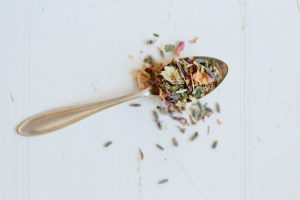The Naturopathic Co.

You're using an outdated browser. Please upgrade your browser to improve your experience.
Attention-deficit/hyperactivity disorder (ADHD) is a condition affecting 12% of school-aged children as well as a growing number of adults, and it’s on the rise.
Symptoms include fidgeting/ being unable to sit still, impulsiveness, inability to concentrate, excessive physical movement, excessive talking, acting without thinking, and more.
Medications are often used to activate dopamine and noradrenergic neurotransmitter pathways in the brain, and although this may lead to improved attention, it may also come with side effects such as constipation, weight loss, sleep impairment, headaches, abdominal pain, increased heart rate and blood pressure.
The number of reported cases of ADHD increased by 43 percent between 2003 and 2011. Research suggests that exposure to toxic chemicals — everyday toxins found in foods, carpeting and flooring, cleaning and lawn products, and personal-care products, like toothpastes — may contribute substantially to disorders such as ADHD.
During foetal development, exposure to even minuscule amounts of toxins at critical junctures can have a lifelong impact on the child’s brain and physical health. Toxins have been found in the placenta and umbilical cord.
The most critical part of development takes place in the first trimester of pregnancy — when the cell architecture and connections between neurons are established.
There can be all kinds of chemical exposure, just as part of normal life:
Negative changes in brain development have been linked to BPA and BPS exposure.
Zinc
Some research suggests that higher levels of hepcidin in ADHD patients contributes to lower stores of iron. Hepcidin is a hormone that influences red blood cell production and acts as a regulator in iron metabolism and storage.
Ferritin levels below 30ng/mL tend to exacerbate to many ADHD symptoms such as sleep impairment, headaches, fatigue, brain fog, irritability, and restless leg syndrome.
High zinc foods: meat, shellfish (oysters, crabs, prawns), legumes (lentils, kidney beans, chickpeas), seeds (hemp, pumpkin, sesame seeds), nuts (pine nuts, cashews, and almonds), dairy, eggs, wholegrains (quinoa, rice, and oats), dark chocolate.
High iron foods: shellfish, spinach, meats, legumes (cannellini beans and kidney beans), pumpkin seeds, quinoa, broccoli, tofu, dark chocolate, dried figs and apricots, edamame, spirulina.
Choose Natural Items made from wood, glass, and metal for your home.
Try chemical free cleaning products, or make your own.
Cook with non-toxic and chemical-free cookware and utensils.
Eat organic whole foods.
Try body brushing, commit to a regular detox
According to Alexx Stuart at Low Tox Life, the following should be considered when going low tox:
References
https://www.ncbi.nlm.nih.gov/pmc/articles/PMC6681912/
https://www.ncbi.nlm.nih.gov/pmc/articles/PMC3037197/
https://pubmed.ncbi.nlm.nih.gov/23582950/
https://pubmed.ncbi.nlm.nih.gov/32992575/
https://pubmed.ncbi.nlm.nih.gov/15583094/
https://pubmed.ncbi.nlm.nih.gov/30690945/
https://pubmed.ncbi.nlm.nih.gov/24377840/

Yvette – Naturopath & Holistic Nutritionist with The Naturopathic Co.
Yvette is a qualified Naturopath and Nutritionist, MINDD Practitioner, member of the Naturopaths and Herbalists Association of Australia.
Yvette specialises in the treatment of gut health and digestive complaints, skin issues, mood disorders, hormonal concerns, fatigue, and more.
Yvette sees patients Australia-wide.
Comments are closed.